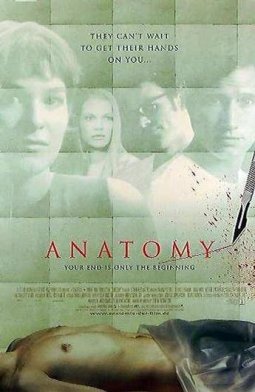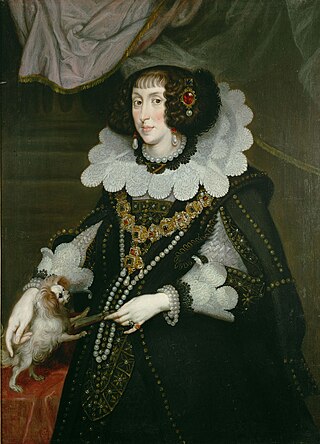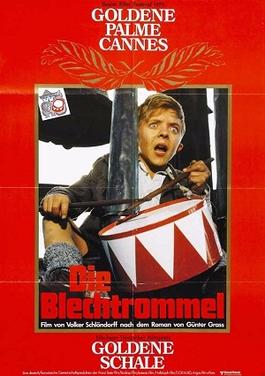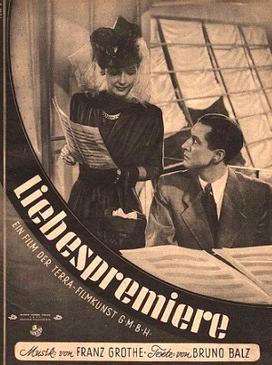
Mila 18 is a historical novel by Leon Uris set in German-occupied Warsaw, Poland, before and during World War II. Mila 18 debuted at #7 on The New York Times Best Seller list and peaked at #2 in August 1961. Leon Uris's work, based on real events, covers the Nazi occupation of Poland and the atrocities of systematically dehumanising and eliminating the Jewish people of Poland. The name "Mila 18" is taken from the headquarters bunker of Jewish resistance fighters underneath the building at ulica Miła 18. The term ghetto takes on a clearer meaning as the courageous Jewish leaders fight a losing battle against not only the Nazis and their henchmen, but also profiteers and collaborators among themselves. Eventually, as the ghetto is reduced to rubble, a few courageous individuals with few weapons and no outside help assume command of ghetto defence, form a makeshift army and make a stand.

The Tin Drum is a 1959 novel by Günter Grass, the first book of his Danzig Trilogy. It was adapted into a 1979 film, which won both the 1979 Palme d'Or and the Academy Award for Best Foreign Language Film in 1980.

Alexander Kluge is a German author, philosopher, academic and film director.

Anatomy is a 2000 German horror film written and directed by Stefan Ruzowitzky that stars Franka Potente. The film became the highest-grossing German-language movie in 2000. Columbia Pictures released the film's English-dubbed version in the United States theatrically. However, the dubbed version underperformed at the United States box office.

Archduchess Maria Anna of Austria, was a German regent, Electress of Bavaria by marriage to Maximilian I, Elector of Bavaria, and co-regent of the Electorate of Bavaria during the minority of her son Ferdinand Maria, Elector of Bavaria from 1651 to 1654.

The Tin Drum is a 1979 internationally co-produced magical realistic dark comedy anti-war film adaptation of Günter Grass's novel of the same name, directed by Volker Schlöndorff from a screenplay co-written by Schlöndorff, Jean-Claude Carrière, and Franz Seitz. It stars Mario Adorf, Angela Winkler, Katharina Thalbach, Daniel Olbrychski, and Charles Aznavour, with David Bennent in the lead role of Oskar Matzerath, a young boy who willfully arrests his own physical development and remains in the body of a child even as he enters adulthood.
'Beate Mainka-Jellinghaus' is a German film editor who was a member of the New German Cinema movement and is noted particularly for her many films with director Werner Herzog. Between 1966 and 1986, she was credited on more than twenty-five feature films and feature-length documentaries.
Alexandra Kluge was a German actress and medical doctor.
Roswitha Esser is a West German sprint canoeist who competed from the mid-1960s to the early 1970s.
Heidi Genée was a German film editor, director and screenwriter. She worked on more than 40 films between 1958 and 1984. Her 1977 film Grete Minde was entered into the 27th Berlin International Film Festival. Five years later, her film Kraftprobe was entered into the 32nd Berlin International Film Festival.
Margarete Mitscherlich-Nielsen or the "Grande Dame of German Psychoanalysis" as she was often referred to as, was a German psychoanalyst who focused mainly on the themes of feminism, female sexuality, and the national psychology of post-war Germany.
Vaya con Dios is a 2002 German comedy film directed by Zoltan Spirandelli, and takes the form of a road film.

Fatinitza was the first full-length, three-act operetta by Franz von Suppé. The libretto by F. Zell and Richard Genée was based on the libretto to La circassienne by Eugène Scribe, but with the lead role of Wladimir, a young Russian lieutenant who has to disguise himself as a woman, changed to a trousers role; in other words, a woman played the part of the man who pretended to be a woman.

"Hermann und Thusnelda" is a poem written in 1752 by Friedrich Gottlieb Klopstock exalting the Cheruscan chieftain Arminius, whom Johannes Turmair and Martin Luther named Hermann in the 16th century, and his wife Thusnelda. The poem was set to music by Franz Schubert in 1815 (D 322).

The Wedding Hotel is a 1944 German comedy film directed by Carl Boese and starring Karin Hardt, René Deltgen and Walter Janssen. Due to Allied bombing raids on German cities like Berlin, much of the film was shot around Kitzbühel in Tyrol. It was one of a number of light-hearted German films made in the final year of the Third Reich.

Love Premiere is a 1943 German comedy film directed by Arthur Maria Rabenalt and starring Hans Söhnker, Kirsten Heiberg and Fritz Odemar. The film's sets were designed by Robert Herlth.
Edna O'Shaughnessy was a South African-born British Kleinian psychoanalyst.

Prisoners of Love is a 1954 West German drama film directed by Rudolf Jugert and starring Curd Jürgens, Annemarie Düringer and Bernhard Wicki. It revolves around the story of a married couple separated by the Second World War. It was shot at the Bavaria Studios in Munich. The film's sets were designed by the art director Erich Kettelhut and Johannes Ott.

Isolde Josefa Ludovika Beidler was the first child of the composer Richard Wagner and his wife, who is generally known as Cosima Wagner.
Roswitha Blind is a German mathematician, specializing in convex geometry, discrete geometry, and polyhedral combinatorics, and a politician and organizer for the Social Democratic Party of Germany in Stuttgart.











